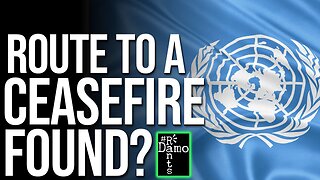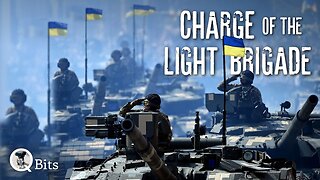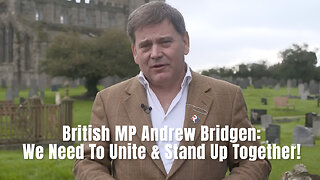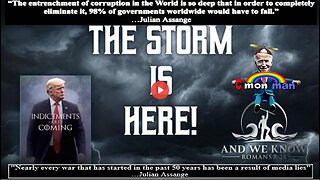URGENT BROADCAST TO ASTRAL WARRIORS & LIGHTGRID CREW - YOUR MISSION IS COMPLETE!
URGENT BROADCAST TO ASTRAL WARRIORS & LIGHTGRID CREW - YOUR MISSION IS COMPLETE! I REPEAT YOUR MISSION IS COMPLETE. MISSION SUCCESSFUL. HEAD OFFICE THANKS YOU FOR YOUR CONTINUED SERVICE. PLEASE STAND DOWN SOLDIERS! @TEAMLUCIFER 0 @TEAMHUMANITY 1 WE ARE AT PEACE. GOOD FRIDAY PEACE AGREEMENT IRELAND " Good Friday Agreement
Article
Talk
Read
Edit
View history
Tools
From Wikipedia, the free encyclopedia
"British–Irish Agreement" redirects here. For the 1921 treaty, see Anglo-Irish Treaty. For the 1985 treaty, see Anglo-Irish Agreement.
Multi-Party Agreement
Type Multilateral agreement
Signed 10 April 1998
Location Belfast, Northern Ireland
Effective 2 December 1999
Parties
Government of the Republic of Ireland
Government of the United Kingdom
Parties in Northern Ireland
Language English
British–Irish Agreement
Type Bilateral international agreement
Signed 10 April 1998
Location Belfast, Northern Ireland
Effective 2 December 1999
Original
signatories
Tony BlairBertie AhernMo MowlamDavid Andrews
Parties
Republic of Ireland
United Kingdom
Ratifiers
Government of the Republic of Ireland
Government of the United Kingdom
Language English
Constitutional documents and events relevant to the status of the United Kingdom and its countries
List per year
vte
The Good Friday Agreement (GFA) or Belfast Agreement (Irish: Comhaontú Aoine an Chéasta or Comhaontú Bhéal Feirste; Ulster Scots: Guid Friday Greeance or Bilfawst Greeance)[1] is a pair of agreements signed on 10 April, Good Friday, 1998, that ended most of the violence of the Troubles, an ethno-nationalist conflict[2] in Northern Ireland that had prevailed since the late 1960s. It was a major development in the Northern Ireland peace process of the 1990s. It is made up of the Multi-Party Agreement between most of Northern Ireland's political parties, and the British–Irish Agreement between the British and Irish governments. Northern Ireland's present devolved system of government is based on the agreement.
Issues relating to sovereignty, governance, discrimination, military and paramilitary groups, justice and policing were central to the agreement. It restored self-government to Northern Ireland on the basis of "power sharing" and it included acceptance of the principle of consent, commitment to civil and political rights, cultural parity of esteem, police reform, paramilitary disarmament and early release of paramilitary prisoners, followed by demilitarisation. The agreement also created a number of institutions between Northern Ireland and Ireland ("North–South"), and between Ireland and the United Kingdom ("East–West").
The agreement was approved by voters across the island of Ireland in two referendums held on 22 May 1998. In Northern Ireland, voters were asked in the 1998 Northern Ireland Good Friday Agreement referendum whether they supported the multi-party agreement. In Ireland, voters were asked whether they would allow the state to sign the agreement and allow necessary constitutional changes (Nineteenth Amendment of the Constitution of Ireland) to facilitate it. The people of both jurisdictions needed to approve the agreement to give effect to it.
The British–Irish Agreement came into force on 2 December 1999. The Democratic Unionist Party (DUP) was the only major political group in Northern Ireland to oppose the Good Friday Agreement.[3]"
-
 3:04
3:04
Saipan! Discover the history and the mystery!
8 months agoLive! Here on the Beach...Channel Mission & What's to Come
17 -
 8:51
8:51
Kernow Damo
5 months agoHas a route to a ceasefire been found & the answer to Gaza’s prayers?
1203 -
 2:29:48
2:29:48
MisinformationTV | Hosted by CJ & Amy
1 year ago5TH Generation Warfare w/ Red Dawn Radio + Dr. Ardis on Can You Get Unvaxxed?
2.1K2 -
 32:22
32:22
MyCatholicRedPill
1 year agoSituation Update: Patriot Underground Episode 253 (please see info & links in description)
6643 -
 1:47:49
1:47:49
MarnerBenjamin
6 months agoISRAEL! ALERTS! WAR! FCC & INTERNET! SAN FRANCISCO! URGENT DREAM! STAN PROPHECY! MISSIONS! PS: 34
150 -
 9:37
9:37
KernowDamo
3 months agoMore chaos to come - the SNP aren’t finished with Hoyle & Starmer yet!
101 -
 2:41:44
2:41:44
QBits With GoodDog
1 year ago#087 // CHARGE OF THE LIGHT BRIGADE - LIVE
2.43K2 -
 5:27
5:27
Sunfellow On COVID-19
7 months agoBritish MP Andrew Bridgen: We Need To Unite & Stand Up Together!
7.99K19 -
 6:41
6:41
Kernow Damo
7 months agoStarmer gets glittered, but was it all a set up?
73 -
 54:28
54:28
MyCatholicRedPill
11 months ago6.14.23: THEY will not WIN! STORM is here, COMMS are CLEAR! TOGETHER! PRAY!
2.43K5